Many people enjoy making apple cider and hard cider at home which is easier than you might think. In recent years, there has been growing concern that making anything harder than hard cider is considered illegal.
If you’re curious about how the law applies to naturally making cider drinks at home, you’ll want to find out what your legal rights are and how you can avoid any trouble.
Since 1979, the US had allowed individual states to regulate home brewing and left most states in the dark about this topic until 2013. What happened in 2013 was a major relief and victory for homebrewers who like to make simple concoctions in their home on a legal level.
This includes cider for the simple reason that it’s not actually being distilled in any technical form. It’s simply being transformed into an alcoholic beverage through natural fermentation.
When it comes to hard alcohol distillation, which is the separation of liquids through heat by a traditional distillation process, it becomes a much different legal matter.
Distillation can reach much higher percentages of alcohol by separating the alcohol from the rest of the brew using heat to extract the higher levels of alcohol as an end product.
Apple cider doesn’t use this method and is therefore perfectly legal to make even if you may use champagne or wine yeast along with added sugar to obtain higher (15-20%) alcohol concentrations.
In each US state as long as you are at least 21 years of age, you can make up to 100 gallons per person per year. In some select states if there is more than one adult per household this limit is raised to 200 gallons per year.
If you’re curious about what your state allows per household you can check what the legal limits are for making cider here as it may change from year to year.
Is it legal to make hard cider at home?
The answer to this has been highly debated by many home brewers as a cider, or apple wine can vary substantially in alcohol content and brewing method.
The legal question has a lot to do with the alcohol volume that is produced. It takes time to make good hard cider and this all depends on the natural sugars within your apple juice.
It also depends on the addition of sugar to feed the yeast. This is ultimately what will cause your hard cider to have such an alcoholic kick.
Hard cider that is left to do its thing for a few months can produce at least 12.5% ABV with added sugar in the right conditions with the right yeast.
This is perfectly legal since it does not involve any enrichment of the naturally produced alcohol.
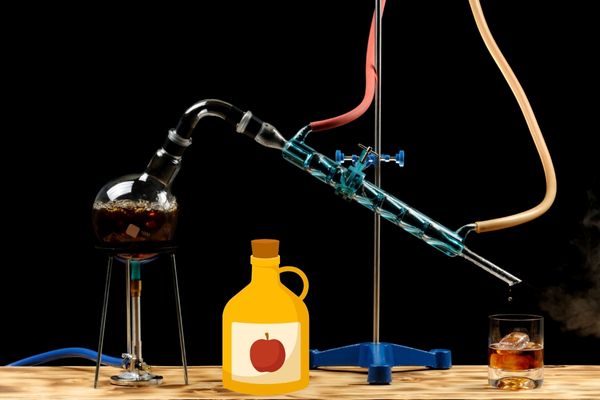
At that point, it still falls under the title of homemade cider regardless of how long it’s been allowed to ferment. The only issue with this method is the length of time that it will take when home brewing hard cider in the first place.
There isn’t any actual authority that’s checking on what is sitting around from the previous 6 months to one year.
So, anything made from the prior season that is simply in storage (fermenting or not) is essentially allowed because of the yearly limits.
Is making applejack illegal?
Applejack is a strong alcoholic beverage made from apples. It is typically around 25-40% alcohol by volume. The drink originated in the United States, specifically in the New England region.
It is made by fermenting apple cider and then freeze-distilling it to remove the water content. This leaves behind a more concentrated and potent drink.
It is an excellent example of an issue of what many state authorities are calling illegal. It’s a yes and no answer but is not crystal clear as applejack, as a strong form of cider enriched in alcohol, is made using something called freeze distillation rather than heat distillation (opposite but same!).
It not only takes a longer time to freeze destil, but is simply freezing water rather than using heat for distillation. This is why hard cider producers wait until the winter to complete this task.
According to the TTB (Alcohol and Tobacco Trade Bureau) it is not legal to freeze hard cider and separate the water from the cider with the sole purpose of enriching it for alcohol.
When you contact the TTB to ask them if it is legal to freeze distill your cider at home, they respond:
“Because Federal law requires a permit to operate as a distiller and prohibits the operation of a distillery in a residence, in order to freeze wine or cider you will have to file an application with TTB and follow our regulations regarding the manufacturing processes approved for making distilled spirits.”
Correspondance with the TTB.
This has been quite an unpopular legislation as it is legal to carry out the same freeze distillation process for beer but not for cider!
However, as cider and beer are two quite similar beverages when it comes to alcohol percentage and beer is defined as a fermented drink made from grains, some cider makes simply add grains to their cider (which btw. does add quite a nice taste to the cider!).
The final result is applejack which is now a concentrated 30% ABV and is equal to 60 Proof.
Despite the high alcohol content within it, unlike with heat distillation, the sugars and sweetness is also enriched by freeze distillation. Most people end up with a hangover that is the worst feeling ever when drinking more than two shots of freezer applejack.
This is because freeze distillation as a fairly crude way of distillation that will bring along a portion of methanol with the increased ethanol concentration.
Whereas methanol is naturally present in apple juice and cider, it is not a problem until it is concentrated, but then it may contribute to pretty bad hangovers!
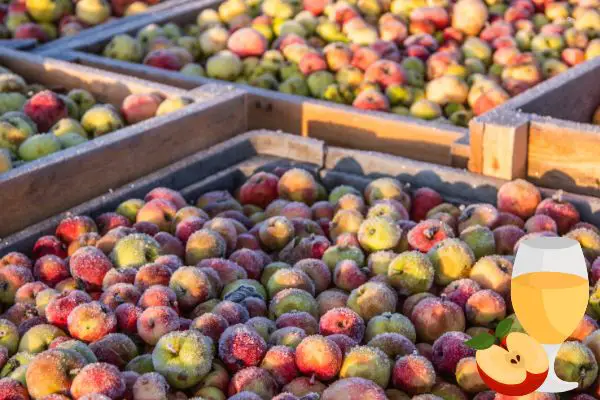
One legal way to use freezing cold to make a stronger cider is to make so-called ice cider. Similar to icewine, the juice from frozen apples will have a higher sugar content compared to that of warmer ones and this extra sugar can be used to make more alcohol.
With the right yeast strain, the thick sweet juice pressed from frozen apples can be fermented to reach an alcohol concentration of up to 15% and will still have residual sugar to make it sweet. A bit similar to a sweet dessert wine.
Do you need a license to sell home-brewed cider?
It is important to have a license in order to sell home-brewed cider, as this is regulated by the TTB. The cost of the license will differ from state to state but generally falls between $75 and $2000.
As for selling many other things (especially those with higher taxes), making cider with the intent to sell it will require an official license.
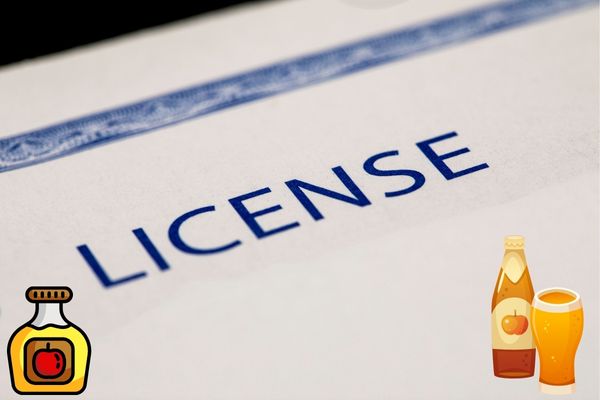
However, this is actually not a big issue in the US, and the authority to directly contact to get this license is called the TTB aka Alcohol and Tobacco Tax and Trade Bureau. The first thing that you want to have is a business to acquire the license that will be tax registered. This is how your sales can be regulated by the TTB.
Once you have a legal business, (essentially what most people will call a business license), then you apply for the right to sell cider products.
The cost for each license will range from state to state and may cost anywhere from $75 to $2000 depending on the size of how much you intend to home brew or produce each year.
There may also be some other permits and licenses that may be required depending on the state in which you are selling your product.
For example, some states may require that you get a food handling permit or license in order to sell any type of food product, including cider.
Conclusion
As you can see, there aren’t too many issues when it comes to making your own apple cider.
So, you can make hard cider at home and it is perfectly legal as long as you do not make use of distillation.
The main concern that most people seem to have is in regards to selling their own homemade cider and where to get the license from the state.
However, as mentioned above, getting a license and selling your own homemade cider is really not that problematic since it is monitored by the TTB.
As long as you’re over 21, you’re free to make your own hard cider at home as a private homebrewer and can do so without issue.
On the other hand, it is illegal to make ‘Maraschino’ or ‘Applejack’ due to the freeze distillation process which is commonly used to get a stronger concentration of alcohol. At least without a permit from the TTB.
However, these rules give you more than enough room to play around with different fermentation methods once you start experimenting with making your own cider.

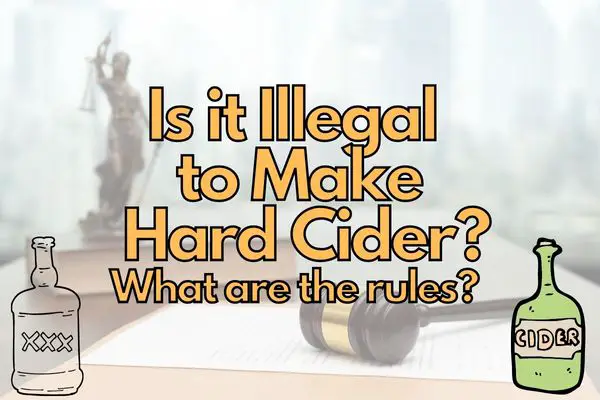

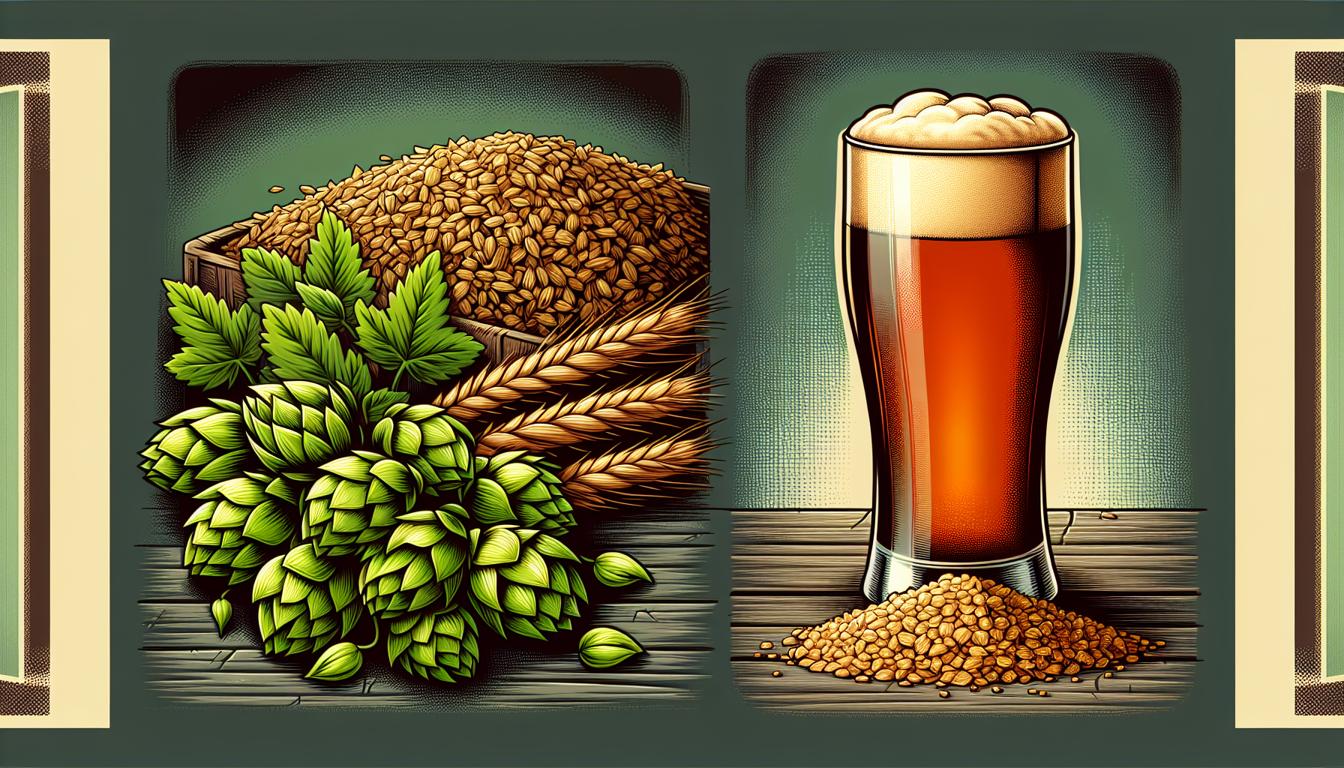
-recipe.jpg)